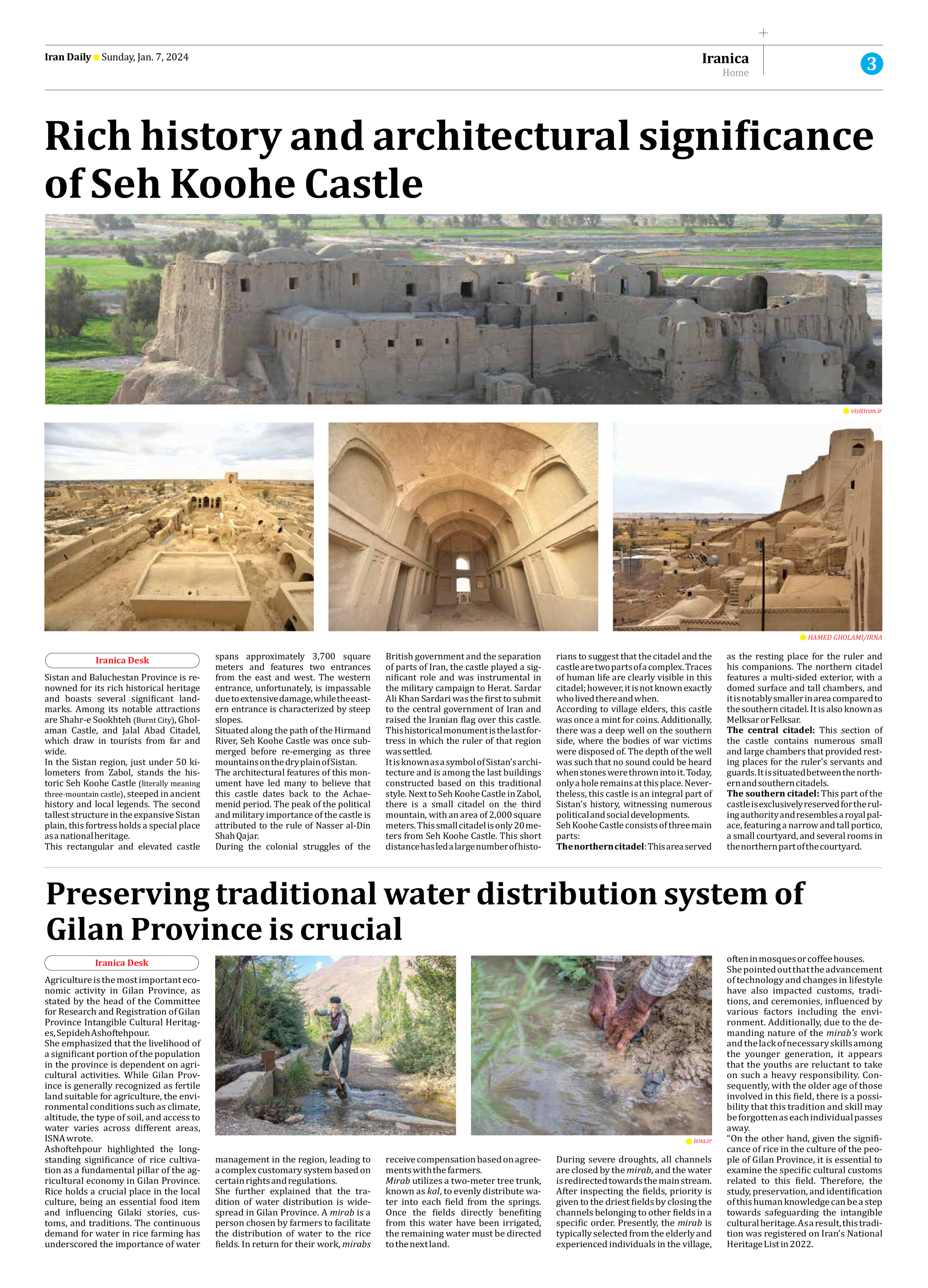
Preserving traditional water distribution system of Gilan Province is crucial
Agriculture is the most important economic activity in Gilan Province, as stated by the head of the Committee for Research and Registration of Gilan Province Intangible Cultural Heritages, Sepideh Ashoftehpour.
She emphasized that the livelihood of a significant portion of the population in the province is dependent on agricultural activities. While Gilan Province is generally recognized as fertile land suitable for agriculture, the environmental conditions such as climate, altitude, the type of soil, and access to water varies across different areas, ISNA wrote.
Ashoftehpour highlighted the longstanding significance of rice cultivation as a fundamental pillar of the agricultural economy in Gilan Province. Rice holds a crucial place in the local culture, being an essential food item and influencing Gilaki stories, customs, and traditions. The continuous demand for water in rice farming has underscored the importance of water management in the region, leading to a complex customary system based on certain rights and regulations.
She further explained that the tradition of water distribution is widespread in Gilan Province. A mirab is a person chosen by farmers to facilitate the distribution of water to the rice fields. In return for their work, mirabs receive compensation based on agreements with the farmers.
Mirab utilizes a two-meter tree trunk, known as kal, to evenly distribute water into each field from the springs. Once the fields directly benefiting from this water have been irrigated, the remaining water must be directed to the next land.
During severe droughts, all channels are closed by the mirab, and the water is redirected towards the main stream. After inspecting the fields, priority is given to the driest fields by closing the channels belonging to other fields in a specific order. Presently, the mirab is typically selected from the elderly and experienced individuals in the village, often in mosques or coffee houses.
She pointed out that the advancement of technology and changes in lifestyle have also impacted customs, traditions, and ceremonies, influenced by various factors including the environment. Additionally, due to the demanding nature of the mirab’s work and the lack of necessary skills among the younger generation, it appears that the youths are reluctant to take on such a heavy responsibility. Consequently, with the older age of those involved in this field, there is a possibility that this tradition and skill may be forgotten as each individual passes away.
“On the other hand, given the significance of rice in the culture of the people of Gilan Province, it is essential to examine the specific cultural customs related to this field. Therefore, the study, preservation, and identification of this human knowledge can be a step towards safeguarding the intangible cultural heritage. As a result, this tradition was registered on Iran’s National Heritage List in 2022.







